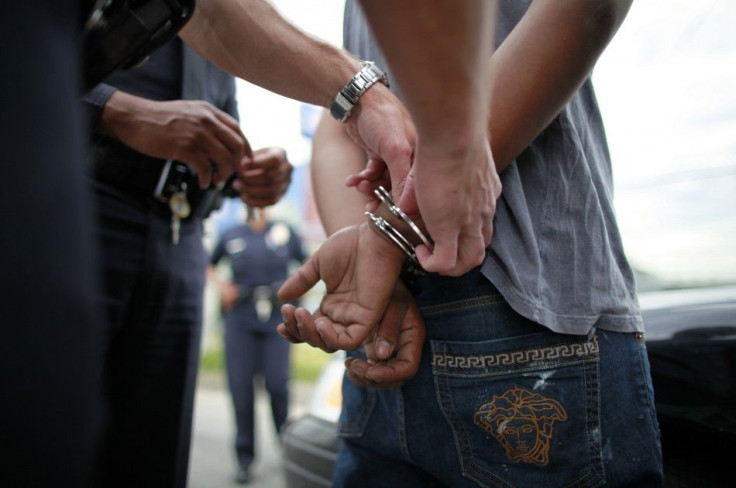More Than 2,000 Wrongfully-Convicted Exonerated In Past 23 Years: Study

When Cassandra Ann Kennedy accused her father, Thomas, of raping her in 2001 there was damning evidence: Trauma to her genitals and the girl could tell in detail how she was raped in the bathroom.
A year later, Thomas Kennedy was convicted on three counts of rape, sentenced to 15 years in prison and his appeals were futile, according to the National Registry of Exoneration.
This year, Thomas Kennedy, 32, is a free man.
In January, Cassandra, told police she falsely claimed that her father raped her. The 22 year old told authorities that the evidence of trauma to her genitals resulted from sexual encounters with a boy in her class. She begun engaging in sexual activities with that boy since the second grade, the Registry reported.
Thomas Kennedy is not alone.
More Than 2,000 Exonerated Since 1989
Kennedy is one of more than 2,000 people exonerated in the United States since January 1989, a study from the Registry revealed. The study was a joint effort between the University of the Michigan Law School and the Center on Wrongful Convictions at Northwestern University School of Law.
Nearly 900 of these exonerations are featured in an online database. The Registry is continuously being updated with data.
Researchers found that more than 1,000 of the cases over the last 23 years are group exonerations resulting from 13 separate police corruption scandals. These major scandals involved the planting of drugs and guns on innocent defendants, according to researchers. Furthermore, the group exoneration cases include more than 200 drivers who were framed for drunk driving by police officers who usually stole money from their wallets in the process, researchers said.
Rob Warden, executive director of the Center on Wrongful Convictions, said that the national registry, which is the most complete list of exonerations compiled, gives an unprecedented view of the scope of the problem of wrongful convictions in the United States.
It's a widespread problem, Warden said.
Some of the key findings in the report of the nearly 900 exonerated included in the online database are:
- 93 percent are men, 7 percent women;
- 50 percent are black; 38 percent are white; 11 percent are Hispanic and 2 percent are Native American or Asian;
- 37 percent of those convicted were exonerated with the help of DNA; 63 percent without DNA;
- Since 2000, exonerations averaged 52 a year.
- 49 percent of the crimes were homicide (416) and resulted death sentences 12 percent of the time (101).
- 35 percent were sexual assaults (305) -- 203 cases for adult sexual abuse, while 102 were for child sex abuse;
- Robbery and other violent crimes accounted for 5 percent each.
- Drugs, white collar crimes and other non-violent crimes accounted for 7 percent (58).
Conviction Errors
Further, the statistics show that it is not only those accused of murder and rape who are exonerated.
Regarding murder, researchers found perjury to be a big problem. They find that this happens usually by a witness who claims to have seen the crime or participated in it. Researchers also said that these types of exonerations often involve false confessions.
In the case of rape, the false convictions are almost always due to on an eyewitness' mistake.
Regarding child sex abuse exonerations, almost all are due to fictitious crimes that never happened.
For Thomas Kennedy, perjury and false accusation were major factors leading to his conviction. His daughter told a court that she may have known what exactly to say to convince police just from watching movies or entering a bedroom when adults were engaging in sexual encounters, the Registry stated.
States With Most Exonerations
Illinois, New York, Texas and California are among the top 10 states in exonerations. Michigan, Louisiana, Florida, Ohio, Massachusetts and Pennsylvania round out the lot, but this doesn't mean that they are the states with the most false convictions.
It's clear that the exonerations we found are the tip of an iceberg, said Samuel Gross, Michigan Law professor and editor of the Registry.
Gross who also authored the report said many people who are falsely convicted are not exonerated.
They serve their time or die in prison, he said. And when they are exonerated, a lot of times it happens quietly, out of public view.
Long Way To Go For Complete Picture
Though he believes the data in the Registry is a good start, Warden, said there is still a long way to go before the nation has a complete picture of wrongful convications in America.
Gross said the immediate benefit of the study is that researchers may learn about additional cases they are not yet aware of; also, long-term analysis of false conviction data can help professionals understand what leads to wrongful convictions and how to prevent them.
Read the full report below:
Ex One Rations Us 1989 2012 Full Report
© Copyright IBTimes 2025. All rights reserved.






















